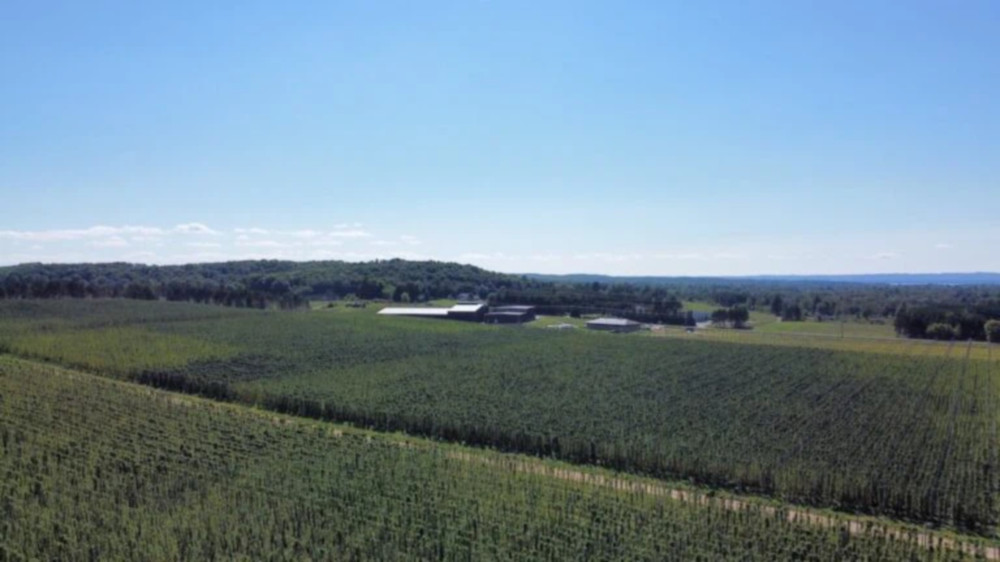Despite concerns about market oversaturation and challenges in the craft brewing industry, Michigan hops farmers say they are encouraged by this year’s “quality” harvest.
MI Local Hops, a 220-acre hops farm located in Acme Township, about 10 miles east of Traverse City, harvested its eighth crop this September. Mike Moran, president of MI Local, which is in the process of selling the farm, reported his company has an “above average” harvest this year, even though it may not have broken any records.
Moran said having an experienced and consistent team helped grow a quality 178-acre crop this year, while the fluctuating weather patterns posed challenges during the summer.
“We’ve had to juggle some things a little bit, but it’s nothing we haven’t dealt with in the past,” Moran said.

This year, MI Local Hops has harvested an average of 1,200 to 1,300 pounds of hops per acre, a harvest Moran says the farm is “feeling pretty good about.”
“We’re up in some of our key varieties that we needed to be up on last year, and last year was a good year for us,” Moran said. “Centennial, Chinook, Nugget, those are up by about 100-150 pounds an acre.”
Data on the overall size of this year’s harvest were not yet available for Michigan, the largest state for hops outside of the Pacific Northwest. In 2022, Michigan growers harvested 380 acres of hops, about half of the acreage harvested in 2018.
Nationally, Yakima, Wash.-based Hops Growers of America estimated the acreage harvested will be down about 8% this year, while production was expected to inch up 2.5%. The trade group forecasts yields will reach 1,886 pounds per acre nationwide.

At Omena-based Hop Alliance, owner and founder Brian Tennis echoed Moran’s positive sentiments about Michigan’s harvest. While the Leelanau Peninsula farm had to contend with cooler temperatures over the summer, Hop Alliance had a “really good year for quality,” Tennis said.
“It’s been unseasonably cool most of the summer and we really didn’t get any rain until the last few weeks of harvest, so it was an odd growing season,” Tennis said. “But the plants and the hops are perfect.”
This year, Hop Alliance harvested between 1,500 and 1,800 pounds of hops per acre, normal yields for the 30-acre farm. Tennis said it was a standout year for Centennial and Chinook varieties specifically, noting good quality across the board for the more than 20 varieties he processed for other Michigan farms.
One of those growers is Linda Burkett at Allegan-based Twisted Hops Farm Inc. Burkett runs a small operation, harvesting only around 2 acres of hops this year with plans to expand to 4 acres next year. As a result of a “wonderful” early harvest, the farm already sent its hops to Hop Alliance for marketing and sale.
Equipment upgrades, process improvements and the work of an eight-person crew allowed Hop Alliance to pelletize its entire harvest and begin marketing the hops to brewers, Tennis said. This is the earliest he’s been able to finalize the pelletizing process, which usually lasts until December or January.
Tennis is hoping the quick harvest and processing will give him an edge in a tough hops market that’s grappling with oversaturation and ongoing pandemic-related disruptions.
“It certainly gives us a big advantage to have everything pelletized and on the market for sale because the first six months or so is really when you’re going to see the most return on your crop, when you’re going to realize the most bang for your buck as a farmer,” Tennis said. “There’s still a lot of competition on price point no matter what, so we just try to be as efficient as we possibly can.”
Source : Crain’s Grand Rapids Business

